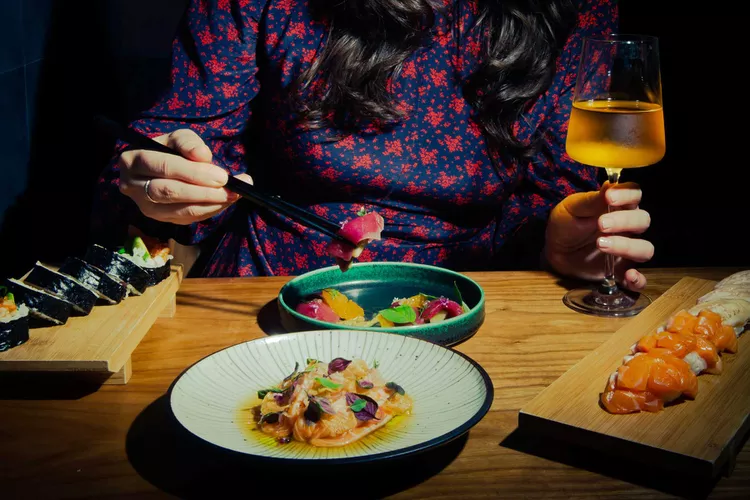Summary
- Rosella – A groundbreaking sushi restaurant focusing on sustainable sourcing in New York City.
- Paul Siguqa – The CEO of South Africa’s only fully Black-owned winery, transforming the industry for the better.
A sustainably sourced New York sushi restaurant and the CEO of South Africa’s only fully Black-owned winery are reshaping what’s possible in the food industry.
The Global Vision Awards aim to identify and honor companies, individuals, destinations, and organizations that are taking strides to develop more sustainable and responsible travel products, practices, and experiences. Not only are they demonstrating thought leadership and creative problem-solving; they are taking actionable, quantifiable steps to protect communities and environments around the world. What’s more, they are inspiring their industry colleagues and travelers to do their part.
Creating sustainable change in the food and beverage industry often requires starting from the ground up — or, in some cases, the ocean. To keep up with consumer tastes and demand for certain ingredients, restaurants may find themselves sourcing products from halfway around the world, especially when it comes to prized seafood. That way of operating stresses not only the buyers’ budgets but also the environment’s resources. Consequently, New York City’s Rosella is prioritizing local sourcing when it comes to procuring fish for its sushi. Moreover, the disparities that exist on the human side of the industry can be just as troubling — an issue Paul Siguqa is all too familiar with as the owner and CEO of South Africa’s only fully Black-owned winery. In both instances, these thought-leaders are carving out new paths forward for food and drink professionals, demonstrating to their colleagues and the public what can be accomplished when the status quo is challenged.
Rosella
If you eat high-grade sushi in the U.S., there’s at least a 70 percent chance the fish on your plate was imported, according to the National Oceanic & Atmospheric Administration (NOAA). However, Rosella, a 22-seat sushi restaurant that opened in New York City’s East Village in 2020, isn’t importing any fish at all. Chef Jeff Miller, who owns the place with business partner TJ Provenzano, is dedicated to sustainable sourcing, relying on data from Seafood Watch and NOAA to make informed choices about what to serve.
The result is a menu that merges Japanese traditions and locally available products — approximately 95 percent of the sushi comes from the East Coast. “We source porgy and bluefish as much as possible,” Miller states. “They’re exemplary fish that both make great sushi.”
Miller believes that the key to driving change lies in leading by experience. “We want to create a fun environment where people know exactly what they’re eating — and enjoy it,” he emphasizes.

Paul Siguqa
Winery CEO Paul Siguqa grew up observing his mother, Nomaroma Siguqa, work as a laborer in South Africa’s Winelands, first among the vines and later in the cellar. “I used to hate the idea of working on a farm, because normally Black people are the labor while white people are the landowners,” Siguqa recalls. According to a report by the trade organization Vinpro, Black people constitute roughly 80 percent of South Africa’s population, yet own just 2.5 percent of the country’s vineyard acreage.
Over time, Siguqa’s passion for wine blossomed. He secured his first college job at a winery and saved funds for 15 years while working in corporate media. “I always wanted to come home to the Winelands,” he reflects. In 2019 — 28 years after the fall of apartheid — Siguqa bought a 25-acre estate in the Franschhoek region and, within two years, had transformed it into Klein Goederust, the first fully Black-owned winery in the country. Today, the property boasts a tasting room and fine-dining restaurant amid thriving vines of Chenin Blanc and Cabernet Sauvignon.
As CEO, Siguqa uses his position to assist others in the industry, mentoring Black youth from the Pinotage Youth Development Academy, which offers skills development and work placements. “The narrative I hope we can achieve with this vineyard is to show what’s possible,” Siguqa expresses. “The tide is changing.”





